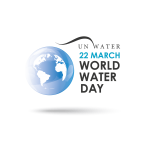On March 22, annual World Water Day will be especially relevant, as the United Nations and its co-sponsors hope to raise global awareness of water risks—particularly in Cape Town, South Africa. As we previously reported, a diminishing water supply is that city’s top priority, as it is counting down to an increasingly imminent “Day Zero” on July 9, when it could effectively become the first major city to run dry.
One of World Water Day’s partners is World Wide Fund For Nature South Africa (WWF-SA), an arm of what was formerly known as the World Wildlife Fund. Christine Colvin, senior manager of Freshwater for WWF-SA, recently discussed Cape Town’s struggles and how other major cities and businesses can learn from the preparedness plan and efforts to avoid a total drought.
Risk Management Monitor: Cape Town, which has 4 million residents, has a preparedness plan in effect that includes rationing among 200 water distribution points for 25 liters per person. Do you feel this plan is sustainable?
Christine Colvin: At this stage, the general consensus is that Day Zero is not as imminent a threat as it was earlier in the year, and in all likelihood, there will be some rain and augmentation schemes will start to come online before dams drop to the critical 13.5% (which would activate the disaster plan). Consequently, the major

push is to encourage citizens to stay within their current daily limit of 50 liters of water per person, per day to see us through to the rainy season and beyond. If we are able to achieve this objective, the hope is that we should push out Day Zero as far as possible, thus buying the city time to bring on augmentation schemes.
RMM: How could Cape Town officials explore nature-based solutions (this year’s World Water Day campaign) to its water challenges?
Colvin: Ecological infrastructure is the foundation of water security and the first link in the water value chain. If our catchments are healthy and functional they deliver better quality, more reliable yields of water into our dams and aquifers. If they are invaded with alien vegetation or degraded by over-grazing or over-burning then they yield less water and more silt that will eventually destroy any downstream infrastructure we build to deliver water to our homes and farms. WWF-SA actively advocates the protection of water source areas through, among other things, water stewardship and catchment clearance of alien vegetation and has actively communicated this approach to the City of Cape Town during this drought period.
In our communications to the general public, we also encourage better stewardship of existing natural water sources such as groundwater and rivers, and promoting a water-wise culture. Our stewardship work in the Western Cape, the province in which Cape Town is located, focuses strongly on the agricultural sector which is a key industry for the region.
RMM: What steps can a major city take to prepare for a drought?
Colvin: Our Wednesday Water File on international case studies highlights many pertinent actions, perhaps best summarized in the Australian example:
- Invest in fixing leaking infrastructure—one of the most cost-effective measures to improve water supplies
- Introduce a demand management program which includes strict new legal requirements on business and domestic water use, coupled with a major education campaign
- Diversify water supplies so if one source fails others can be drawn on, among them: dams, desalination, recycled water, rainwater tanks, groundwater, and storm water harvesting
- Create a water grid which links major regional water supplies so water can be moved to where it is needed
RMM: How is World Water Day raising awareness to the situation in Cape Town?
Colvin: While water is top of mind in Cape Town, the intention is to remind all South Africans that we live in a water-stressed country and the protection of strategic Water Source Areas and their natural capital is a national project. Water source areas are particularly important—making up 8% of South Africa’s land area but delivering 50% of our river flow to the rest of the country. Good management of these high rainfall mountainous headwater areas delivers a high return on investment downstream.
World Water Day is an important time to reflect on the relationship between water and nature. Many, but not all, residents of Cape Town are now aware of the “new normal” in which we are likely to experience much drier periods and have to conserve water but it remains vital to reinforce the message that water does not come from a tap—it comes from nature.
Justin Smulison contributed to this post.


 />i
/>i
